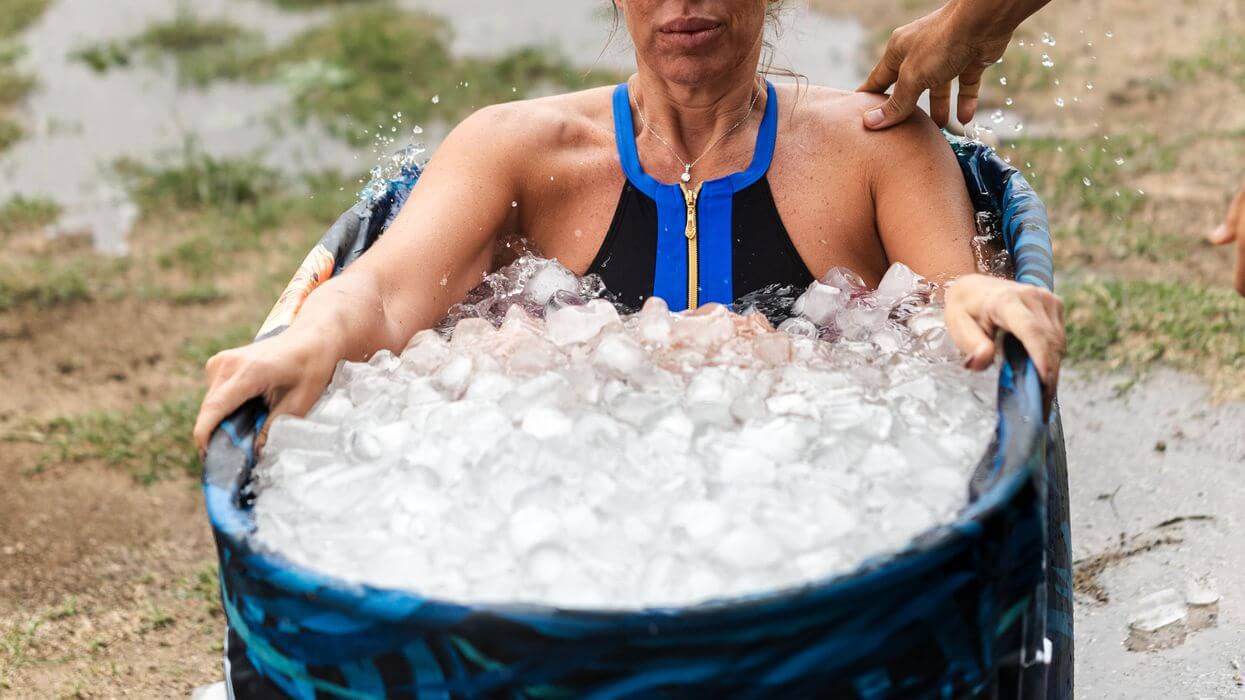Why do athletes sit in freezing water after training? This article explores the science behind ice baths and gives you the chance to practise modal verbs, -ing forms, and verb + object + infinitive structures through a short grammar quiz.

2. The Power of Ice Baths
After a tough workout, many athletes turn to a surprising method for recovery: ice baths. This practice, also called cold water immersion, (1)____________ sitting in icy water for several minutes. While it may sound unpleasant, it’s believed to reduce muscle soreness and speed up recovery time.
Ice baths are especially popular among professional athletes, but regular gym-goers are starting to give them a try too. Studies suggest that cold temperatures may help lower inflammation and muscle pain. However, experts also (2)____________ people to use caution and not stay in the water too long.
In recent years, ice bathing has become a trend on social media, with people sharing videos of themselves taking the plunge. These challenges have (3)____________ attention online and encouraged others to try it for themselves.
Some people even use ice baths as a form of mental training, claiming that facing extreme cold helps improve focus and discipline. Although the science is still being explored, ice baths continue to be a (4)____________ choice for those who want to improve recovery and mental strength.
Whether it’s science or just a placebo effect, ice baths are (5)____________ more common in sports and wellness routines around the world.
Check answers at the bottom of the page.
1.
(A) includes
(B) involves
(C) offers
(D) supports
2.
(A) explain
(B) notice
(C) warn
(D) avoid
3.
(A) made
(B) taken
(C) brought
(D) attracted
4.
(A) promising
(B) dangerous
(C) complicated
(D) temporary
5.
(A) becomes
(B) become
(C) becoming
(D) became
Grammar Points & Explanations
1. Verb + -ing (Gerund) After Certain Verbs
Used in: “This practice… involves sitting in icy water…”
- Why it matters: Many verbs (like involve, enjoy, avoid) are followed by -ing forms. Taiwanese learners often confuse them with infinitives (to sit).
2. Present Continuous as Passive Expression
Used in: “are becoming more common”
- Why it matters: Shows an action currently in progress or a trend. Great for discussing changes over time.
3. Causative Verbs / Advice Verbs
Used in: “Experts warn people…”
- Why it matters: Verbs like warn, advise, recommend are commonly used in formal and instructional language.
4. Relative Clauses
Could be expanded in: “...people who want to improve recovery…”
- Why it matters: Relative clauses are a powerful tool to connect and add detail to ideas. Important for writing development.
5. Collocations
Examples:
- “take the plunge” (idiom: to try something new)
- “reduce muscle soreness”
- “form of mental training”
- “attract attention”
- Why it matters: Collocations help learners sound more natural and understand word partnerships.
6. Word Forms (Adjective vs. Verb)
Tested in: “attracted attention” vs. “attract attention”
- Why it matters: Students often confuse forms like attract/attracted/attracting—this affects sentence correctness.
Correct Answers for “The Power of Ice Baths”
- (B) involves
"…cold water immersion, involves sitting in icy water..."
- (C) warn
"…experts also warn people to use caution..."
- (D) attracted
"…challenges have attracted attention online..."
- (A) promising
"…a promising choice for those who want to improve..."
- (C) becoming
"…ice baths are becoming more common in sports..."

